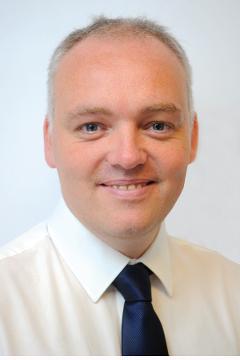Glasgow City Region – Powering up our economic intelligence

Kevin Rush, Director of Regional Economic Growth outlines progress in our data-driven decision-making
A number of initiatives are underway which are set to boost our economic intelligence.
This month will see the launch of the Glasgow City Region Intelligence Hub.
The Hub will provide a range of intelligence related services, such as research, analysis, evaluation and reporting for the City Region and the City Deal on a range of economic indicators – including demographics, land use, sustainability, inward investment, economic growth, tourism, transport, enterprise, skills, employment and housing.
The Intelligence Hub will also provide support to the Regional Partnership, commission and manage external research and consultancy work on behalf of the member authorities, carry out bespoke and pro-active research and environmental scanning.
Work delivered by the Hub will provide an ongoing, more detailed understanding of the Region’s strengths and weaknesses and of how we compare to other city regions. And going forward, as it becomes more established and gears up its internal expertise, the intention would be to reduce the Region’s use of external consultancy.
A request service for information and a wide range of economic data about both the region and individual member authority areas will be provided online later this year – available to anyone for research or business purposes. For example, for use in funding bids or business planning to better target services to needs or opportunities.
The foundations for this have already been established through work completed on a Regional Strategic Assessment (RSA).The RSA is a detailed individual and collective analysis of the economic performance of the Region and the eight local authority areas that make up the Region. It assesses our performance on a wide range of indicators over time, compared to sixteen other competing UK city regions.
The RSA has analysed data under three themes: Business, Labour Market and Quality of Life / Place Attractiveness – with findings included on, for example, the size of and numbers of jobs in the Region’s business base; where jobs are located and how highly skilled are they; how economically active and how qualified the Region’s working-age residents are; how well connected is the Region and how good is public transport; and to what extent are economic benefits distributed among the Region’s residents.
While all of this information is available publically in one form or another – what the RSA does is bring it together in one place to form a cohesive, holistic picture of the Region.
In the context of time, a fast-changing world, Brexit and steep technological advances, this work will also provide an annual analysis of performance against other UK city regions and our Regional Economic Strategy targets, originally established in 2017.
Unlike many other city regions, our RSA has been produced in-house and it will be publically available later this year. You can find out more about it here.
In late 2019 the Commission on Economic Growth will present the Futures Report, a body of research which will complement the RSA and set out the region’s future challenges and opportunities. It will report on a number of distinct areas including the growth drivers of city region economies, innovation systems and issues we will face in the coming years in relation to skills, the labour market, housing and infrastructure.
Work is also progressing with Fraser of Allander Institute, one of Scotland’s leading independent economic research bodies, to develop a Regional Economic Model which will help us to understand the implications of change. So if say, the make-up of the population was to change, the model will allow us to understand what the corresponding impact would be on our economy and importantly on our economic targets.
Finally, an Economic Intelligence Support Group has been established, made up of representatives from across the wider partnership of councils, regional agencies and government, which will continue to analyse the economy, feed into the annual RSA update and share individual pieces of research.
So what does all of this mean?
Thanks to these different strands of complementary work – we now have an accurate, up to date picture of the economic health of the Region and one which we plan to continually monitor and review, in the context of fast-paced change. These important developments will also allow us to understand our key issues, challenges and also opportunities – vital in our effectively competing with other city regions.
But most importantly, it will power-up and strengthen our evidenced, data-driven decision-making which will help us to identify our priorities and make the best choices about the Place we want to create.
